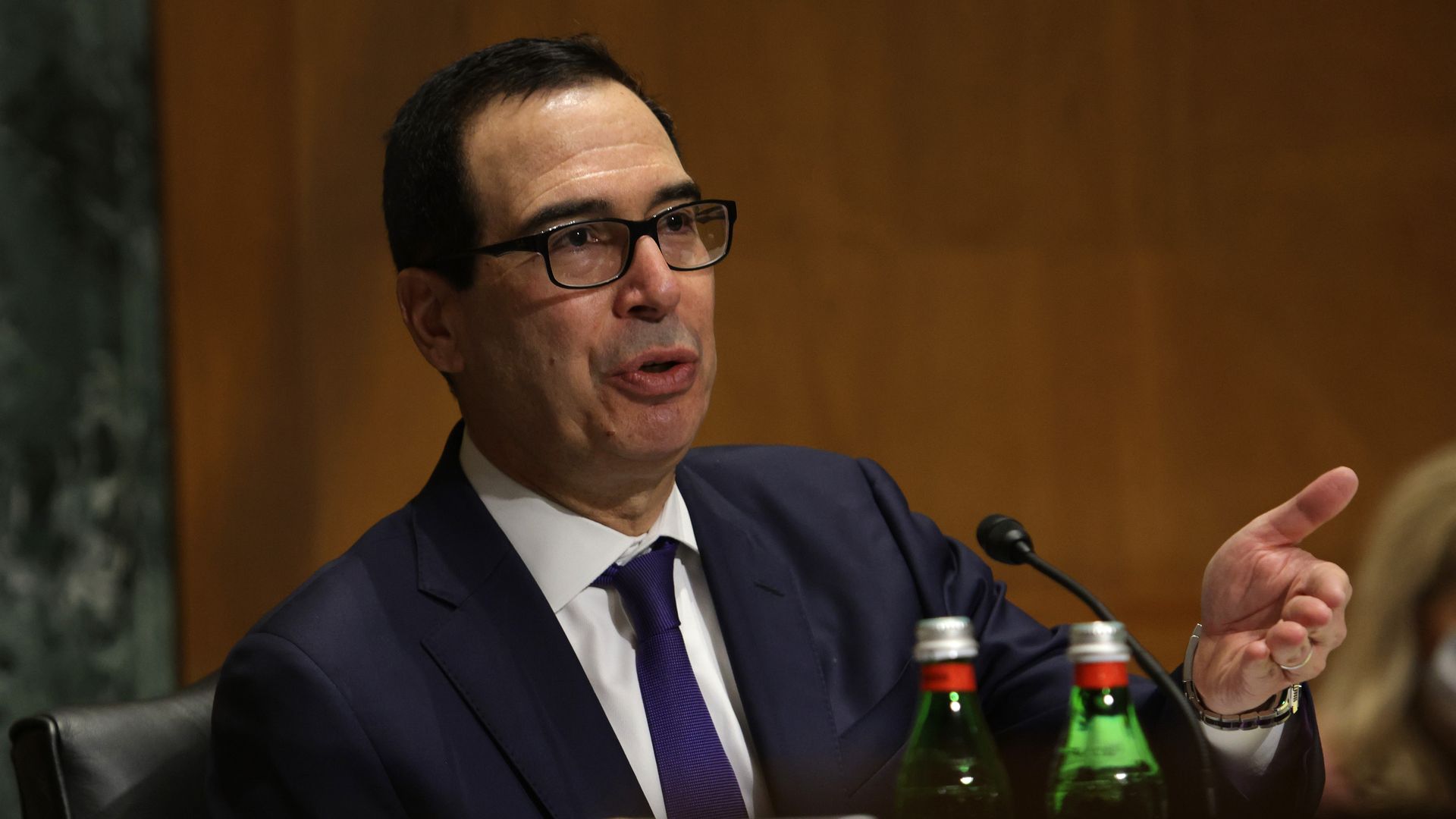U.S. accuses Switzerland and Vietnam of currency war
Add Axios as your preferred source to
see more of our stories on Google.

Treasury Secretary Steven Mnuchin. Photo: Alex Wong/Getty Images
Switzerland and Vietnam have officially been designated as currency manipulators, the Treasury Department announced today.
Why it matters: The designation allows the White House to impose a broad range of tariffs, sanctions and other punishments on the two friendly countries, both of whom have been struggling with strengthening currencies this year.
- The Swiss franc is a classic "flight-to-quality" currency, bought in times of global crisis and uncertainty. When that happens, Swiss exporters suffer, and the domestic inflation rate risks turning negative. So the central bank has intervened in currency markets to slow the strengthening of the currency.
- Vietnam has been the primary beneficiary of the U.S. trade war with China. Global manufacturers who don't want to have all their eggs in the China basket have been moving some of their operations to Vietnam, which carries much less geopolitical risk. The increase in Vietnamese exports has strengthened the currency, and the central bank has tried to keep that strengthening under control.
The big picture: The "currency manipulator" label is rarely used. Until now it has only been applied to China (in 2019 and between 1992 and 1994), as well as Japan and Taiwan in the late 1980s.
Between the lines: While most U.S. administrations pay lip service to the idea that a strong dollar is in the national interest, Trump has aggressively taken the other side, seeking a weaker dollar — which means he wants other countries' currencies to be stronger. Even though the Swiss and Vietnamese currencies have been strengthening, he doesn't think they've been strengthening enough.
The bottom line: The designation will likely have limited practical consequence between now and Jan. 21, at which point a friendlier and more multilateralist Biden administration could try to salve any hurt feelings from this move.
